Syria Justice News in 2020: Roundup and Comment
Mansour Omari
LLM in Transitional Justice
Many have happily said goodbye to 2020, after the Covid-19 pandemic, and other major unhappy events, clouded its days. Nevertheless, 2020 held important long-awaited legal events and news for the Syrians, who have been striving for years to initiate legal actions in their pursuit of justice.
Among the most prominent of these events was the start of the first trial worldwide on state torture in Syria. As well as the Netherlands government step to hold the Syrian government accountable for grave human rights violations, especially torture under the United Nations Convention against Torture.
The most important news in chronological order:
On January 29, the French authorities arrested Majdy Nehme, alias Islam Alloush, a former spokesman for the Syrian Islamist armed rebel group, “Jaysh al Islam”, in Marseille, France, and charged him with war crimes, including torture and enforced disappearance. The arrest followed a criminal complaint filed by the Syrian Center for Media and Freedom of Expression-SCM, the International Federation for Human Rights and the French League for Human Rights on June 26, 2019.
On February 23, Mazen Hamadeh, a victim of torture and who had participated in advocacy activities for detainees, had returned to Syria, after a deal with the Syrian regime. The last news was that Mazen was arrested in Damascus upon his return, and there was no further news about him after that. It was also reported that the Dutch authorities opened an investigation into his case, but there is no more news on this.
On April 23, the trial of Colonel Anwar Raslan began in the German city of Koblenz on charges of committing crimes against humanity, including torture, murder and sexual assault, as well as the officer Iyad al-Gharib who is accused of complicity in these crimes. The two defendants were arrested in Germany in addition to a third suspect in France, who was released later. This trial received remarkable attention among Syrians, the international media and academia. But this trial was marred by several upsets. Firstly, the court did not fully document the trial, meaning that there is no full archive of everything that goes on in the court. This is a lost opportunity and must be fixed. Such archive will be of great value in any transition process for Syrians to understand and address the state’s machine of extermination. These official documents can also be used in legal proceedings in domestic courts in Syria once the war is over, or in future international courts. Such archives have high academic value not only for Syrians but for other countries, as they provide a unique source of information for scholars, historians, and other researchers in the practices of the state’s extermination. There are several similar legal cases now underway in other European countries and in Germany itself. Reading past trial records and understanding precedents are vital to legal systems. The bodies of torture victims in Syria have vanished into oblivion, and now, to add salt to the wound, their families are being denied their right to official records of how this happened, or to attend the trial and watch justice served. The other gripe at the trial was its language. The trial is taking place in Germany, and translation into Arabic is not available to the public or to journalists. The case was prepared and supported by the European Center for Constitutional and Human Rights-ECCHR, Syrian Centre for Legal Studies and Research, SCM, and Open Society Justice Initiative-OSJI
On June 17, ECCHR and with the efforts of the lawyer Jumana Seif, in partnership with Urnamo Organization and the Syrian Women Network, submitted a complaint to the German public prosecutor asking the German authorities to pursue sexual and ongoing violence. On the issue of gender in Syrian detention centers as: a crime against humanity.
On June 17, The Caesar Syria Civilian Protection Act, also known as the Caesar Act, came into force. The Caesar Act is a 2019 United States legislation that sanctions the Syrian government for atrocities against Syrians. Though the Act was named after a former military photographer who smuggled thousands of photographs that document torture and murder of detainees in Syria, the Act changed nothing in the situation of the detainees, where none of them were released and they are still suffering the same torture and violations, including death in detention. However, the Act was seen by others as a huge step towards holding the Syrian regime accountable.
On June 19, 2020, the German authorities arrested Alaa Mousa, and accused him of torturing detainees and burning their genitals while working as a medical doctor for the Syrian regime. Mousa, arrived at Germany in 2015 and practiced as a medical doctor there.
On August 18, the German Constitutional Court agreed to grant access to Arabic translation to accredited journalists in the Court of Koblenz, in response to a court petition to make translation available to the public and to all journalists, submitted by Syrian journalists and human rights organizations with the support of ECCHR and OSJI. This matter also should be followed, and more efforts should be made to grant access to Arabic translation to the public and to all journalists, not only accredited ones. It is also possible to request to open the accreditation of journalists again in 2021.
On September 6, the Syrian lawyer Mahmoud Bakkar, director of public relations and general coordinator of the Syria Legal Network in the Netherlands, died. Bakkar worked in investigation and hunting war criminals in the Netherlands.
On October 5, human rights organizations submitted a complaint to the German public prosecutor asking him to investigate chemical attacks in Syria. The complaint was prepared and filed by SCM, the Syrian Archive, and OSJI on behalf a number of victims of these attacks.
On November 12, the Danish State Prosecutor for Serious Economic and International Crime charged Bunker Holding of selling jet fuel to Russian entities that had supplied them to the Syrian regime, in violation of European Union sanctions against Syria. The Danish company supplied this fuel at a time when the Syrian regime and Russia were bombing Aleppo with airplanes. Mikkel Storm Jensen, a military analyst at the Danish Royal College of Defense, estimated that the amount of fuel sold by the Danish company was sufficient to carry out about 6,000 air strikes.
On November 14, the Austrian newspaper Courier published a press investigation exposing an Austrian-Israeli intelligence operation that had escaped Brigadier General Khaled Al-Halabi and hid him in Austria. Austria did not cooperate subsequently with the investigation requests and the French Europol memorandum. Many Syrians viewed this process as undermining of international justice and the efforts of Syrians and their European partners in combating international crimes and holding Assad accountable.
On November 19, the European Court of Justice issued its interpretation of considering the refusal of military service in Syria as grounds for granting refugee status. The explanation came after a Syrian who fled his country to avoid military service before the Hannover Administrative Court appealed the decision of the German Federal Office for Migration and Refugees to grant him subsidiary protection and to refuse to grant him a refugee status. The Hanover Court asked the European Court of Justice to interpret the International Protection Directives regarding the right to asylum on the grounds of refusing to perform compulsory military service. The court’s interpretation was that refusal of service could be a basis for granting refugee status, but this is up to the assessment of the competent local authorities (asylum offices), if the refusal of service is related to political reasons. That is, the refusal of military service does not automatically provide for the granting of asylum. Rather, the file must be studied and whether the refusal of military service is linked to one of the five reasons for persecution that may lead to the right to grant refugee status, namely race, religion, nationality, political opinion or membership of a particular social group.
On December 11, Croatia formally received a complaint by a Syrian asylum seeker, with the support of ECCHR that was submitted to the United Nations Human Rights Council urging it to examine practices of deportation of asylum seekers in Croatia. This is the first time that a complaint about the bush backs has been submitted to the United Nations Human Rights Council.
On December 16, a German investigating judge issued a warrant extending the arrest of Alaa Moussa in pretrial detention. Alaa was charged with crimes against humanity, including killing one person and torturing 18 others, including by burning detainees’ genitals.
On December 18, OSJI and the Austrian International Center for Enforcement of Human Rights issued a statement urging the Austrian authorities to speed up the prosecution of Syrian war crimes, in connection with the investigation into the accusation of Brigadier General Khaled al-Halabi, former head of the General Intelligence Branch in Raqqa.
The last days of the year 2020, the Turkish citizin Husamettin Kose informed me that he filed a lawsuit to the Turkish Public Prosecutor in Istanbul, against “Bashar al-Assad and his generals” for causing the death of his father and uncle under torture. Husamettin recognized the photo of his father’s corpse in the photos leaked by the dissident Syrian government employee, nicknamed Caesar. According to the Turkish Penal Code, Turkish law applies to crimes against humanity committed in a foreign country, whether they are committed by a Turkish or non-Turkish citizen. In theory, Syrians could move in Turkey to discuss the possibility of filing cases related to crimes against humanity of torture, murder, and sexual assault.
if you think the article contain wrong information or you have additional details Send Correction
النسخة العربية من المقال
-
Follow us :

















 A
A
A
A
A
A

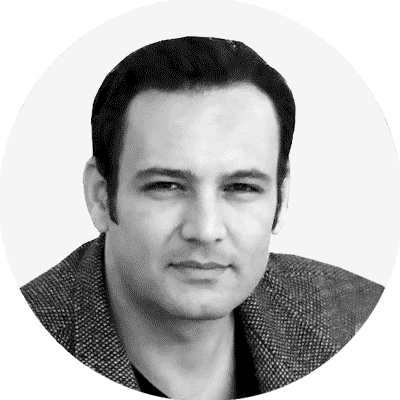


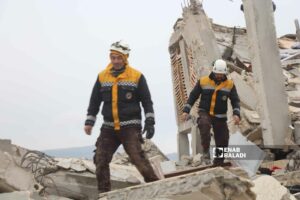
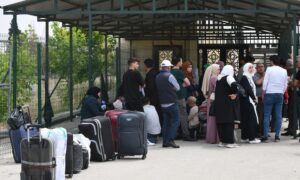
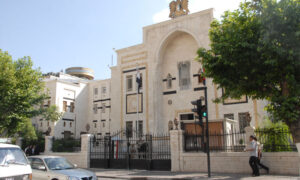
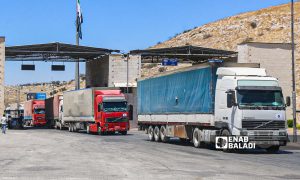
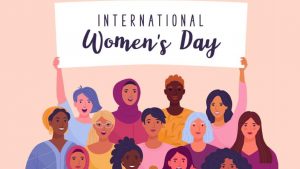
 More Opinion
More Opinion